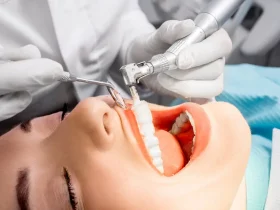Biting insects pierce the skin of animals and humans to get into the blood vessels. They detect the source of food actively with the help of different senses like smell, heat, and sight to seek a suitable host. Some insects take a feed quickly and move away while others stay hidden in the body until they are swollen by sucking blood.
Pest control Manchester is an independent pest control centre that has served Manchester for over 30 years. They serve the customers by providing the service at an affordable price. You can visit their website to get your building completely cleaned from all kinds of infestation.
Biting insects causes inflammation, itching, and painful welts and transmits various diseases that affect thousands of people all over the world. It can also cause a sense of itching because of the reaction of our body to the saliva, which is injected by them. The mouth structure of biting insects is complex and it varies from species to species.
The mouths of biting insects have a needle-like structure that can pierce into the skin. They have a food canal to suck in the blood. It also has a canal to inject saliva that contains anaesthetic and anticoagulants. The anaesthetic helps the insect to feed without any disturbance by making the area numb. The anticoagulant helps by keeping the blood liquid flowing.
Human reaction to insect bites vary depending on the immune system’s sensitivity. Sometimes it may take days for redness and itching to occur after being bitten by the insect. Under such circumstances, you need to find out the factors responsible to identify the source.
Some of the biting insects are:
-
Fleas
Fleas are wingless biting insects. They are 3-4mm long. They jump very easily and are agile. Once they move inside the building, they quickly spread themselves. Fleas affect pets, humans, and animals. Animals such as mice, rats, foxes, dogs, cats, birds, and rabbits.
When fleas bite, tiny dark spots appear in the area with less swelling. A single flea can bite multiple times making the area extremely itchy. Fleas can cause certain diseases like tularaemia, tungiasis, bubonic plague, and murine typhus.
-
Mosquitoes
Worldwide there are around 3500 species of mosquitoes. The diseases transmitted by these mosquitoes affect nearly 700 million human beings every year and 2 million people die due to it. Mosquito bites can cause red bumps that are itchy on the skin.
Some of the diseases caused by mosquitoes are dengue, malaria, yellow fever, chikungunya, etc. We can prevent mosquito bites by covering our skin, using mosquito nets, avoiding bright colours, strong scents, vegetation, etc.
Mosquito bites can be treated by cleaning the affected area with water and soap.
-
Bed bugs
Bed bugs feed themselves at night. They have sensors that identify carbon dioxide, warmth, and odour of the body of the host. These bugs spend 5-10 minutes feeding and nearly 20 minutes if they are not disturbed. They do not cause any disease. Bed bugs are repellent to concrete and tails. Hence, it can be spotted easily.
Don’t let the insects bite you. Keep your home clean and avoid these bugs from entering your area. This can prevent various diseases and you can stay healthy and active.










